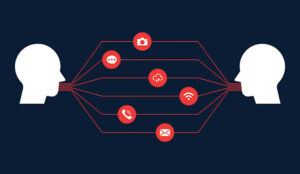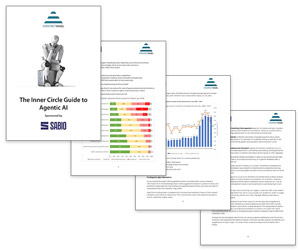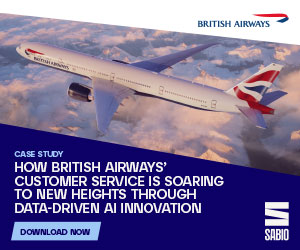Contact centres use different cloud-based communication platforms depending on their needs.
Understanding the differences between Unified Communications as a Service (UCaaS) and Contact Centre as a Service (CCaaS) helps organisations choose the right solution.
To find out more, we asked Lynsay McEwen, Director of CX Strategy at Sabio, to explain the differences between UCaaS and CCaaS.
Video: What Are the Differences Between UCaaS and CCaaS?
Watch the video below to hear Lynsay outline the main differences between UCaaS and CCaaS solutions, and how they are used in contact centres:
With thanks to Lynsay McEwen, Director of CX Strategy at Sabio, for contributing to this video.
The Difference – UCaaS vs CCaaS
The main differences between UCaaS and CCaaS lie in their purpose and functionality, as Lynsay explains:
“UCaaS is for back-end employee conversations, and CCaaS is generally for agent-to-customer communication.”
While UCaaS focuses on internal collaboration, CCaaS is specifically designed to improve communication between agents and customers, as we explore below:
Key Features of UCaaS
UCaaS is designed for internal communication within a business. It helps employees collaborate through tools like video conferencing, voice messaging, and calendar integration.
Compared to older PBX systems, UCaaS offers more communication channels, including SMS and email, making it easier to connect teams on a single platform.
“UCaaS is generally for back-end things, so it will generally be for employees to communicate with each other. It’s usually more simplistic in terms of its features and functionality, but it will provide you with slightly more functionality than maybe an older PBX system.
So it will generally have integration into things like calendar functionality, it will allow employees to schedule meetings with each other.
You’ll get things like video conferencing, it’s usually got voice messaging functionality, and it normally allows for things like SMS and email. So slightly more channels than you would normally get on an older PBX style system.
And implementing something like UCaaS, or a UCaaS system, is generally a good way to get all of your employees onto one system, so for communications, streamlining, collaboration, things like that UCaaS is really good for that.”
Key Features of CCaaS
CCaaS, on the other hand, is focused on customer interactions. It is used in contact centres to handle large call volumes, customer service, and sales. These platforms often include features like IVRs, analytics, and skill-based routing to manage calls efficiently and improve customer experience.
CCaaS systems also integrate with CRM and helpdesk tools, allowing businesses to track customer interactions and maintain records.
“Where CCaaS is generally slightly different to that, is that it’s used primarily for kind of agent to customer communications.
So you’ll normally have larger call volumes, you might be managing a contact centre, and it’s generally used for functions like customer service or sales where you tend to have more features in the platform.
So you have a requirement for things like IVRs, you might have analytics, skill-based routing, queue-based routing, which really just allows organizations to manage those higher call volumes and kind of give a better customer experience.
CCaaS platforms are generally linked to a company CRM system, so they allow the customer, or the company, to track the lifecycle of your call.
And it usually keeps records and things like helpdesk tools that the CCaaS platform is linked in to, so it will allow you to understand the full order of the customer’s query.”
If you are looking for more great insights from the experts, check out these next:
- How Does CI Improve CX?
- Should You Remove AHT as an Agent Target?
- Spring Clean Your Wellbeing and Get Outside
- Understanding Customer Intelligence (CI) and Its Importance
Author: Robyn Coppell
Reviewed by: Hannah Swankie
Published On: 18th Apr 2023 - Last modified: 25th Sep 2025
Read more about - Video, CCaaS, Lynsay McEwen, Sabio, Videos


















